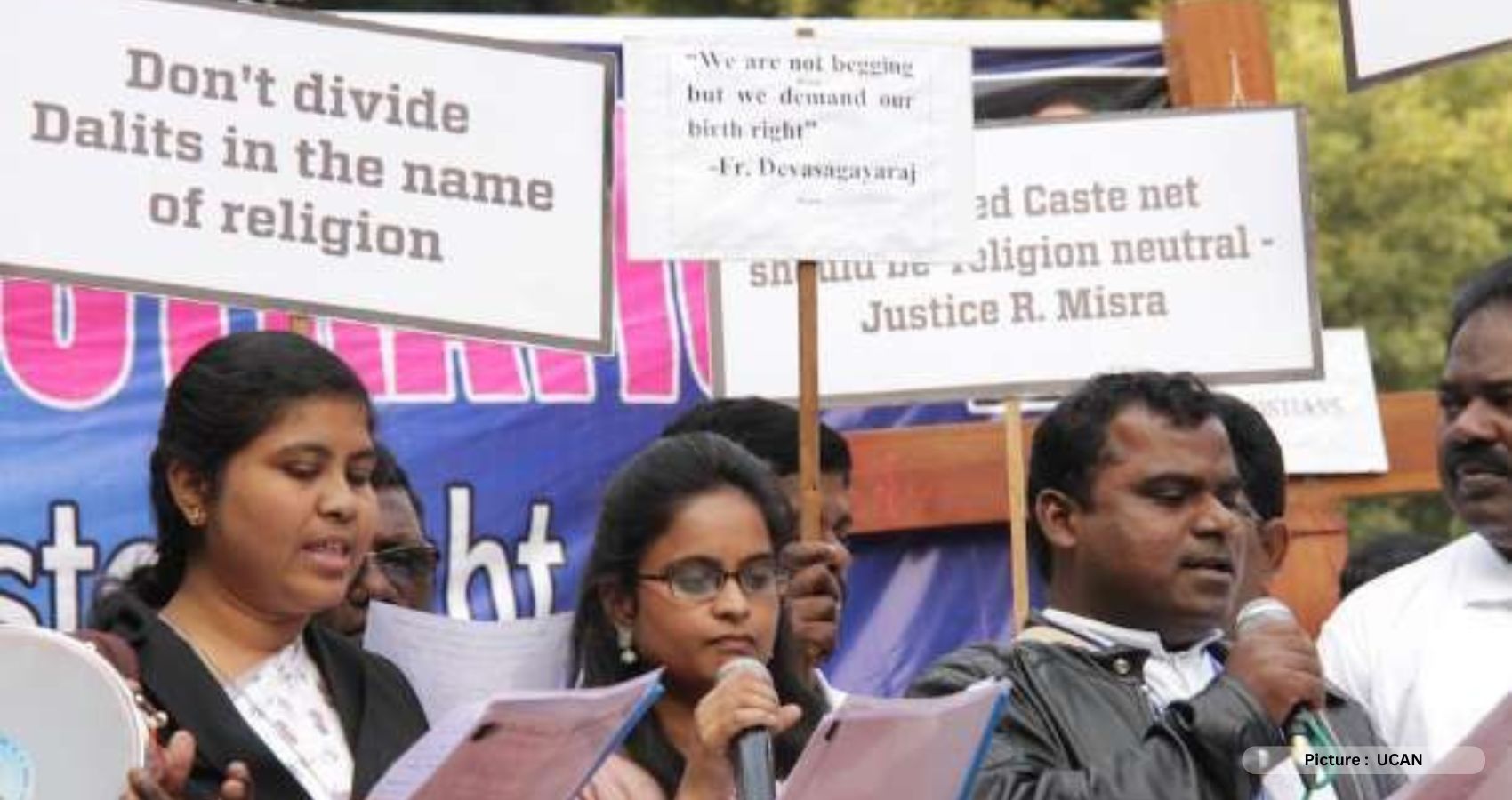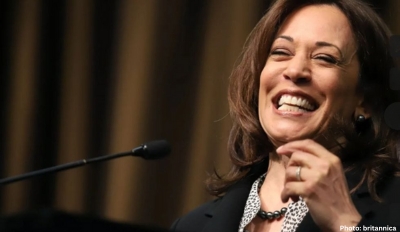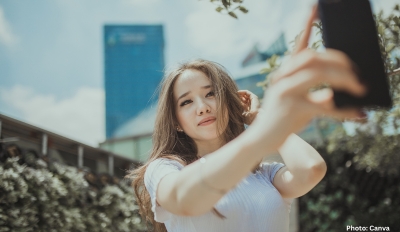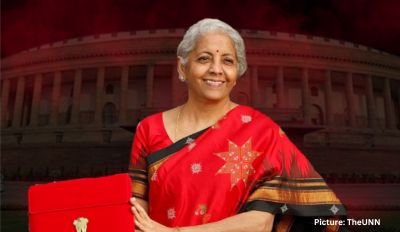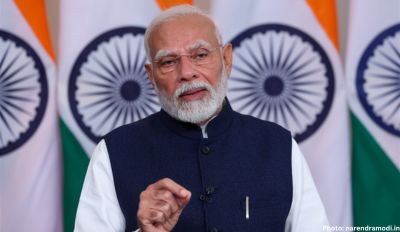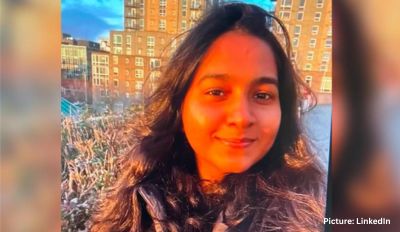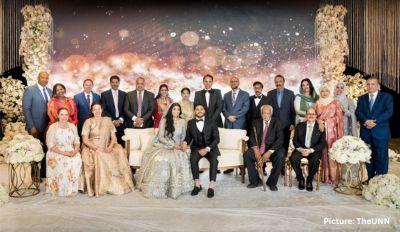(IPS) – Renuka Kumari is a 45-year-old Christian woman from the Dalit community in India’s northern state of Uttar Pradesh. She faces numerous challenges every day and hopes for a day when her struggles will end and she can lead a comfortable life.
Her husband, Subhash Kumar, sells the handmade brooms she makes from trees in the open market to earn a living. Living in makeshift hutments, Kumari’s family’s meagre income makes it difficult to make ends meet.
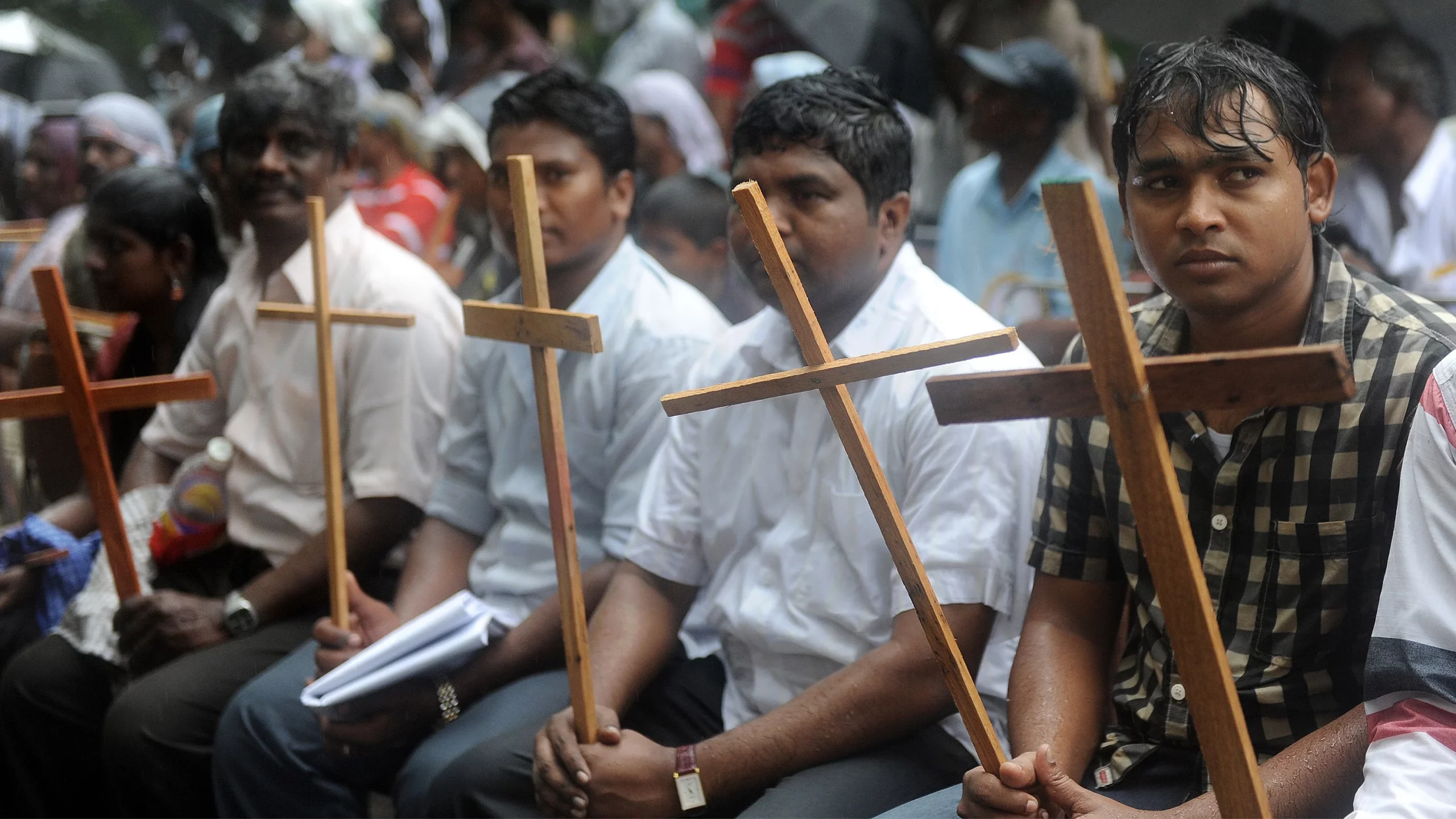
In the original Hindu social structure, the Dalits had the lowest social standing, and they continue to be regarded as being so impure in the majority of the states that caste Hindus view their presence as contaminating. Many Hindus consider their vocations debasing, such as dealing with leather, night soil, and other filthy work, which accounts for their unclean status in society.
Kumari has two children who study in a nearby government school, and she wants them to receive an education and eventually earn a good living. However, Kumari says that society and the government leave her family in dire straits because of their Christian faith. She believes that Dalits who practice other religions receive government grants, health and education benefits, and reservations in government jobs, but as Christians, they are overlooked.
Despite being economically disadvantaged, Kumari’s family does not qualify for government schemes. Her husband, Subhash Kumar, says that they earn no more than 5000 rupees (USD 80) a month and providing their children with a good education is challenging without government support. Dalit Christians are discriminated against and denied benefits solely because of their faith, adding to their struggles.
Background of Discrimination
After India gained independence from British rule in 1947, the government introduced significant initiatives to uplift the lower castes. These initiatives included reserving seats in various legislatures, government jobs, and enrolment in higher education institutions. The reservation system was implemented to address the historic oppression, inequality, and discrimination experienced by these communities and to provide them with representation. The aim was to fulfil the promise of equality enshrined in the country’s constitution.
On August 11, 1950, the President of India issued the Constitution (Scheduled Castes Order, which provided members of Scheduled Castes with various rights as outlined in Article 341(1) of the Indian Constitution. However, the third paragraph of the order stated that “no person who professes a religion different from Hinduism shall be deemed to be a member of a Scheduled Caste”.
In 1956, Dalit Sikhs demanded inclusion in the Constitution (Scheduled Castes) Order, 1950 and were successful in getting listed in the Presidential SC/ST Order, 1950, through an amendment to Para 3 of Article 341. Dalit Buddhists were also included through an amendment to Para 3 of Article 341 in 1990.
Christians and Muslims of Dalit origin now demand that they get social welfare benefits meant to uplift Dalit people. Both communities have been denied these benefits since 1950 because the government says their religions do not follow the ancient Hindu-caste system.
Legal angles
Nearly 14 Christian organizations in India have filed petitions in the country’s Supreme Court requesting reservations in education and employment for the 20 million Dalit Christians, who account for 75 percent of the total Christian population in India. In India, people are segregated into various castes based on birth, and 80% of the population is Hindu. Although parliament outlawed the practice of untouchability in 1955, India’s lower castes, particularly Dalits, continue to face social discrimination and exclusion.
In April this year, the Supreme Court of India requested that the federal government take a stance on granting reservation benefits in government jobs and educational institutions to Christian converts among the Dalits. The court is scheduled to hear the petition and decide on the status of Dalit Christians.
The Indian government had formed a committee to investigate the possibility of granting Scheduled Caste status to those who had converted to other religions but claimed to have belonged to the community historically. This was the second panel set up by the government after it rejected the recommendations of the first commission, which had recommended including them.
According to Tehmina Arora, a prominent Christian activist and advocate in India, it goes against the core secular values of the country to deny rights to individuals solely based on their religious beliefs. Arora emphasised that even if individuals convert to Christianity or Islam, they continue to live in the same communities that treat them as untouchables, and their circumstances do not change. Therefore, she believes people should not be denied the benefits they previously had due to their faith.
God is Our Hope
Renuka Kumari shares that she prays for her children’s success every day, hoping that God will help them excel in life. She laments that their entitlements are denied solely because they chose Christianity as their faith. She finds it ironic that they are denied government grants for this reason, causing them to live miserable lives and struggle every day to provide their children with education and a better future. Kumari’s two children, Virander and Prerna, are currently in the second and seventh grades. Sujata aspires to become a teacher one day and is passionate about mathematics. She dreams of teaching at her school, just like her favourite teacher, and is particularly fond of algebra. (IPS UN Bureau Report)

